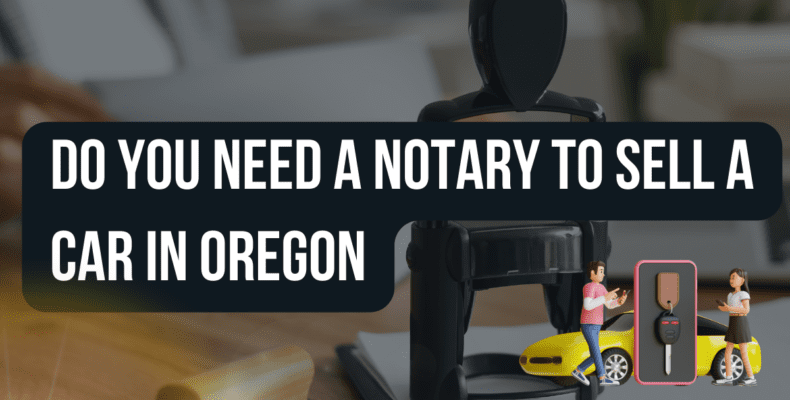In Oregon, you typically do not need a notary to sell a car. However, it’s always wise to check the most current state regulations as they can change. The process of selling a car in Oregon is relatively straightforward but involves several important steps to ensure a legal and smooth transaction. This guide will walk you through the process, highlighting key points and tips to make your car selling experience in Oregon as seamless as possible.
Understanding Oregon’s Requirements for Selling a Car
Selling a car in Oregon requires adherence to specific regulations set by the state’s Department of Motor Vehicles (DMV). Understanding these requirements is crucial to ensure compliance and avoid any potential legal issues. Below are the key steps involved in selling a car in Oregon:
Title Transfer:
The vehicle title is a crucial document that signifies ownership transfer from the seller to the buyer. In Oregon, the seller must sign the title over to the buyer, releasing ownership rights. It’s essential to accurately fill out the title, including the odometer reading (for vehicles less than ten years old), buyer’s information, sale price, and date of sale.
While some states require notarization for title transfers, Oregon typically does not mandate this step. However, it’s essential to verify the current state regulations, as requirements may change over time. Sellers should ensure that the title is properly filled out and signed to avoid any delays or complications during the transfer process.
Odometer Disclosure:
Federal law mandates odometer disclosure upon the transfer of vehicle ownership to prevent odometer fraud. In Oregon, odometer disclosure is typically included as part of the title document for vehicles less than ten years old. Sellers must accurately report the vehicle’s mileage at the time of sale to the best of their knowledge. Failure to provide accurate odometer information can result in legal repercussions and potential liabilities for the seller.
Bill of Sale:
While not mandatory for title transfer, a bill of sale is a recommended document that records the details of the transaction between the buyer and seller. A bill of sale typically includes information such as the sale date, sale price, vehicle description (including make, model, year, and VIN), buyer’s and seller’s information (including names, addresses, and signatures), and any additional terms or conditions of the sale.
Oregon’s DMV provides a bill of sale form that sellers can use for documentation purposes. While it’s not required for the title transfer process, having a bill of sale can provide additional protection and clarity for both parties involved in the transaction.
Notification of Sale:
After completing the sale, the seller is required to notify the Oregon DMV within ten days. This notification informs the DMV that the vehicle has been sold and transfers the responsibility for the vehicle’s registration to the new owner. Sellers can notify the DMV online or by submitting a notification form, which is available on the DMV’s website or at local DMV offices.
License Plates:
In Oregon, license plates remain with the seller, not the vehicle. Sellers should remove their license plates from the vehicle upon sale to prevent any misuse or confusion. The buyer is responsible for obtaining new license plates and registering the vehicle in their name after completing the purchase.
Frequently Asked Questions (FAQs)
Do I need a notary to sell my car in Oregon?
Generally, no. Oregon doesn’t typically require notarization for car sales. However, it’s essential to verify current state regulations, as requirements may vary.
What documents do I need to sell my car in Oregon?
To sell a car in Oregon, you’ll need the vehicle title, odometer disclosure (if applicable), and a bill of sale (recommended but not mandatory).
How do I notify the Oregon DMV of the sale?
You can notify the Oregon DMV of the sale online or by submitting a notification form within ten days of the sale.
Can I keep my license plates when selling my car in Oregon?
Yes, license plates belong to the seller, not the vehicle. Sellers should remove their license plates upon sale and may transfer them to another vehicle they own or surrender them to the DMV.
Conclusion:
Selling a car in Oregon involves several important steps to ensure a legal and smooth transaction. By understanding the state’s requirements and following the necessary procedures for title transfer, odometer disclosure, notification of sale, and license plate removal, sellers can avoid potential complications and ensure compliance with state laws.
While notarization is typically not required for car sales in Oregon, sellers should always verify the current state regulations to ensure compliance. Additionally, maintaining accurate documentation, such as a bill of sale, can provide added protection and clarity for both parties involved in the transaction.

